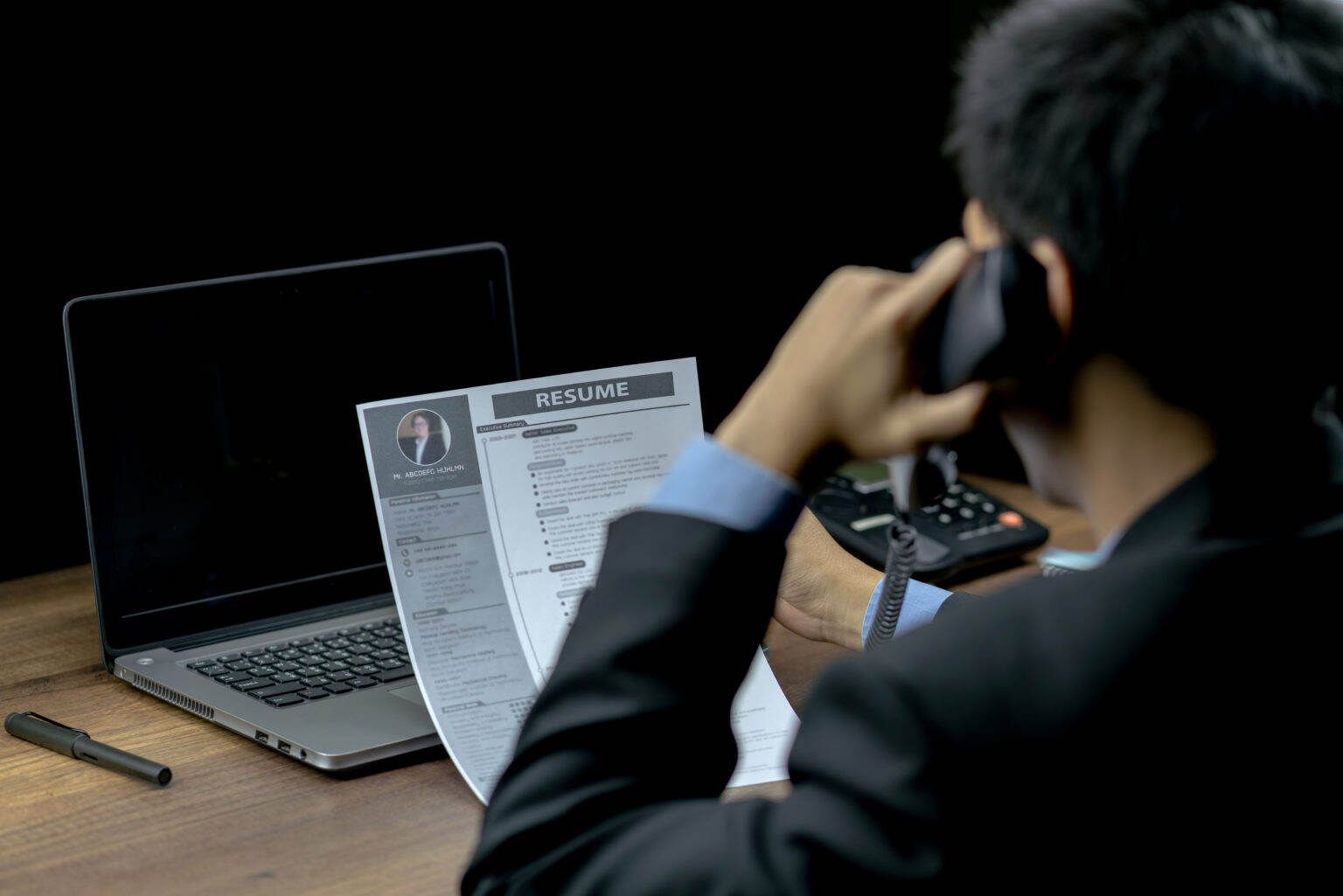How to Ace A Telephonic Interview?
A Telephonic Interview is a technique of interview that recruiters may utilize to assess a candidate's suitability for a position. In a world where occupations are no longer limited by political and geographical constraints, many organizations now conduct phone interviews to short-list prospects before inviting them in for a face-to-face interview.
A phone interview that goes well often proceeds to an in-person assessment, and prospective employers may employ a phone interview to exclude unqualified prospects.
Employers are increasingly adopting preliminary telephone interviews to screen candidates and restrict their workforce before attempting to bring finalists in for in-person interviews because they often have many more competent potential candidates than they can feasibly interview.
Most phone interviews are intending to look at seven prospects:
- To make sure a candidate is practical and reasonably intelligent.
- To check the hours a candidate is available, whether a candidate is willing to relocate and how quickly they would be able to join.
- A candidate’s understanding of the job/industry.
- To probe into their skills and abilities - behavioral as well as theoretical/experiential.
- See if the candidate is genuinely interested or do they sound unprofessional.
- To clear up any questions about the resume before the further process of selection.
- To find out the candidate’s salary expectations.
Let’s have a look at how to prepare for a telephonic job interview.
Before The Telephonic Interview
Talking over the phone isn't always as simple as it appears. Practice, as with an in-person interview, might be beneficial to get an idea of how to prepare for a telephonic job interview.
To practice, have a family member or friend conduct a fake interview and scorecard it so you can hear how you sound on the phone. You'll be able to recognize your "ums," "uhs," and "okays" once you've recorded them, and you'll be able to practice removing them from your pronunciation - which gives you an idea of how to talk in telephonic interviews. Moreover, hearing the audio can assist you in identifying answers that can be improved.
If you don't know somebody who can assist you, try and refute your own questions.
If you're going to use your mobile, make sure it's completely charged and that you're in an area where you'll get decent coverage. You might also discover that standing throughout an interview makes you sound more energized on the phone.
To concentrate on the interview, choose a calm, relaxed, and secluded location with no disturbances.
Preparing For A Phone Interview In Advance
Prepare for your interview by assessing the company you decided to apply to, practicing how you will approach the recruiter and how you will respond to the interviewer's questioning, and keeping your resume nearby for rapid reference during the interview.
It's also a smart idea to jot down their information in your notes so you can refer to it during the interview.
After the interview has begun, you can boost your chances of success by following proper etiquette, which includes the following steps:
-
Confirm your interview's specifics.
Note the date and hour of the interviewer's call so that you may prepare ahead of time. Confirming the specifics of your telephonic interview conversation ensures that all parties involved are on the same page. Check to see if the hiring manager is contacting you or if you need to respond back.
Also, and most importantly, check whether it is an audio/video call or just a telephone call.
-
Pick up the Phone by Yourself
It's critical that you're ready to answer the phone after you've scheduled your phone interview. Guarantee that everyone understands the necessity of not picking up the phone when it rings.
-
Pay close attention to the interviewer
As the interviewer explains the work information and asks you questions, pay close attention. When the interviewer is speaking, avoid interrupting them, and if you have something to say, jot it down for later discussion when it is your chance to speak.
Also, practising active listening can help you avoid misunderstandings or misunderstandings about topics discussed with you by the interviewer.
-
Make a list of questions and take notes
Make a note of things you find important for future reference so you will know what to say during a phone interview. If something is confusing to you, inquire with the interviewer. You can include their explanation in your notes for future reference.
Take a few deep breaths and try to remain cool if something unexpected happens and you end up missing the call or the interviewer doesn't call on time. You need to be able to reschedule and then get the interview back on track.
Etiquette For Telephonic Interview
Telephonic interview etiquette is a big part of preparing for any phone interview. Following are some tips that can help you in this arena:
-
Answer the phone yourself -
First, notify members of the family and/or housemates that you will be receiving a call. When you pick up the phone, say your name. The recruiter will know they've contacted the appropriate person this way. Make an effort to speak in a cheerful demeanor (you can try smiling as you speak).
-
Follow the interviewer's lead -
Some interviewers may want to engage in some small talk for a few minutes. Some other interviewer may begin the interview right away. Allow the interviewer to lead the discussion, but be capable of making small chat.
-
Listen carefully to the interviewer -
Do not start talking until the interviewer has finished his or her inquiry. If you have anything to say, note it down on a piece of paper and bring it up when it's your chance to speak. It can also be beneficial to write down the topic.
-
It is okay if you need a few seconds to think of a response -
However, don't allow too much empty space. Ask the recruiter for clarification if necessary.
Follow Up After The Interview
As the interview comes to a close, remember to thank the interviewer. If you do not even already have the interviewer's email, request it.
Write an email thank-you note as soon as possible, thanking the recruiter and reinforcing your interest in the position. The optimum time to send an interview thank-you email is immediately after the interview, while the conversation is still new in the interviewer's mind. When possible, send your response within 24 hours of the interview. Send one anyway if it has been longer than that.
Thanking the interviewer and expressing your interest in the position and your skills and experience in it are critical components of any job hunt.
There are a few boxes you should check in a thank-you note:
- Thank you for chatting with them.
- Highlight discussion topics that piqued your interest.
- Emphasize your enthusiasm for the position and the organization.
- Keep it brief and to the point.
Remember that a well-written thank-you message is similar to a second interview in that it extends the conversation you just had over the phone. It also recalls the recruiter of the skills you demonstrated during the interview. It's an excellent approach to hone your strongest skills.
In addition to that, if you haven't heard from the recruiting manager within a week, don't be afraid to reach out to find out when they're in the process. They may still be doing interviews and so have no developments for you, but following in keeps you at the forefront of their minds while they cut down interviewees.
Telephonic Interview Tips
- Keep your phone battery charged whenever you are expecting a phone call.
- Do let people around you know you are expecting a call so they don’t disturb you.
- Do not bring up salary or benefits - because this is an initial phone call. Of course, do talk about it if the interviewer raises questions.
- It is important to infuse interest and energy into your voice. You should also avoid yawning or otherwise appearing uninterested in what the interviewer has to say.
- Keep quiet when the interviewer is speaking; you can write down what they have to say and talk later after they are done.
- Speak clearly and correctly. Make a concerted effort to express yourself more smoothly and deliberately while maintaining your upbeat tone.
- You can keep a pen and paper with you close by in case you need to note things down.
- It's usually a good idea to know a little bit about the person you're speaking with, both professionally and commercially. Also, check the job specification for which you are interviewing.
Although we tend to use phones daily, it does not make us completely equipped to be able to conduct ourselves in a professional manner without worries. Thus, these tips can help you gain a competitive edge in the interview process and increase your chances of getting that job offer!
To practice interview conversations with experts, register on the PracUp platform. PracUp also helps to improve your English Communication, by practicing with expert coaches.


